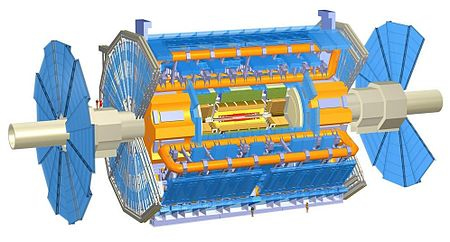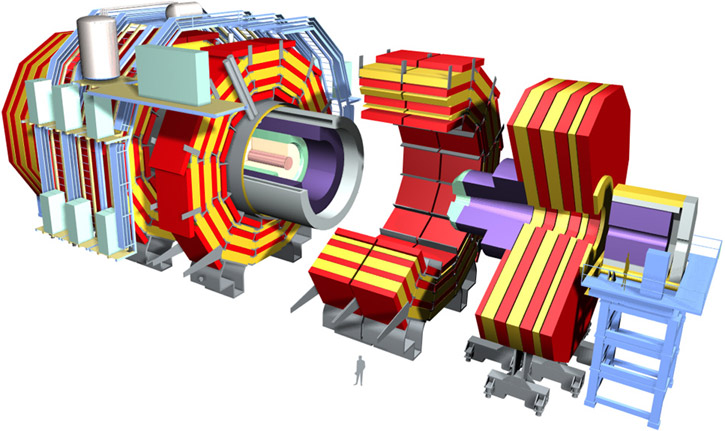CERN
CERN (Conseil Européen pour la Recherche Nucléaire), the European Organization for Nuclear Research
CERN known as the research organization whose is to operate the largest particle physics laboratory. Established in 1954, the organization is based in the northwest suburbs of Geneva on the French-Swiss border has 21 European member states, 2 candidate states and 3 associate member states. As one of the 3 associate member states, Turkey's membership is activated after conrifmation of the Turkish Parliment (TBMM) on 22th January 2015.
Experiment: ATLAS (A Toroidal LHC ApparatuS) Collaboration
Date of attendance: 20 June 2014
ATLAS (A Torodial LHC Apparatue) is one of the seven particle detector experiments (ALICE, ATLAS, CMS, TOTEM, LHCb, LHCf and MoEDAL) constructed at the LHC, a particle accelerator at CERN in Switzerland. The experiment is designed to take advantage of the unprecedented energy available at the LHC and observe phenomena that involve highly massive particles which were not observable using earlier lower-energy accelerators. It might shed light on new theories of particle physics beyond the Standard Model.

Experiment: CMS (Compact Muon Solenoid) Collaboration
Date of attendance: 8 August 2016
The Compact Muon Solenoid (CMS) is a general-purpose detector at the Large Hadron Collider (LHC). It has a broad physics programme ranging from studying the Standard Model (including the Higgs boson) to searching for extra dimensions and particles that could make up dark matter. Although it has the same scientific goals as the ATLAS experiment, it uses different technical solutions and a different magnet-system design.

FCC (Future Circular Collider) Collaboration
Date of attendance: 10 November 2014
The Future Circular Collider (FCC) study develops options for potential high-energy frontier circular colliders at CERN for the post-LHC era.
The main emphasis of the conceptual design study is a hadron collider with a centre-of-mass energy of the order of 100 TeV in a new 80-100 km circumference tunnel for the study of physics at the highest energies. This, along with its detectors, will determine the basic requirements for the tunnel, surface and technical infrastructures. The corresponding hadron injector chain is included in the study, taking into account the existing CERN accelerator infrastructure and long-term accelerator operation plans. The performance and cost of the hadron collider will be compared to a high-energy LHC based on the same high-field magnet technology and housed in the existing LHC tunnel. Such a machine would in principle have the ability to reach 26 to 33 TeV.
Istanbul Aydin University signed the reconciliation within the context of FCC Collaboration with CERN on November 10, 2014 and became the first Turkish university officially to participate in the FCC project and International scientific cooperation.
